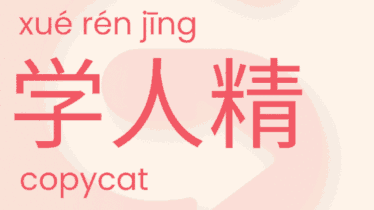The Meaning and Usage of the Chinese Interjection “Wasai” 哇塞
The Chinese interjection “wasai” (pronounced “wah-sy”) is a fascinating linguistic expression that conveys a complex mix of emotions. Despite its simple spelling, this two-character word has nuanced cultural meanings and is widely used in spoken Chinese. In this comprehensive guide, we will explore the definition, usage, and cultural significance of “wasai” to better understand this versatile and meaningful Chinese interjection.
Definition and Literal Meaning
The two characters that make up “wasai” are “wa” (哇) and “sai” (塞). The first character “wa” is an interjectional particle that expresses emotion such as surprise, doubt, admiration, or lament. It is similar to the English interjections “oh”, “ah”, or “eh”.
The second character “sai” means “obstructed”, “blocked”, or “stuffed”. It depicts a situation where passage is impeded. Together, the two characters literally convey a sense of being emotionally obstructed or unable to express oneself fully.
This literal meaning provides insight into the situational usage and cultural significance of “wasai”, which we will explore in more detail later. But first, let’s look at the different shades of meaning associated with this expressive term.
Shades of Meaning
While a literal translation of “wasai” may be “oh blocked”, it actually conveys much more when used colloquially in Chinese. Here are some of the common shades of meaning associated with this interjection:
- Disbelief – “Wasai” can express disbelief, shock or astonishment, similar to saying “No way!” in English. It is often said with widened eyes and a dropped jaw.
- Speechlessness – The interjection can also convey speechlessness, being at a loss for words, or unable to find the right words to express oneself fully. This relates back to the literal “obstructed” meaning.
- Impressed – In some contexts, “wasai” communicates being deeply impressed or awed by something. It signals admiration.
- Revelation – When said with a rising intonation, it can convey having a revelation, realizing something, or becoming enlightened.
- Lament – With a falling tone, it expresses regret, sadness, or lament over an unfortunate situation.
- Complaint – The interjection can also carry a complaining tone or express frustration over a less than ideal circumstance.
As you can see, “wasai” is highly versatile, with a wide range of possible sentiments depending on the context and intonation. But its core meanings seem to revolve around being emotionally impacted in some way, either positively or negatively.
Situational Usage of Wasai
Now let’s look at some typical situations where the interjection “wasai” might be uttered:
- Witnessing something incredible – For example, seeing an astonishing musical performance, athletic feat, or spectacle in nature. The feeling is amazement.
- Receiving shocking news – Hearing a surprising announcement or learning an unbelievable fact can elicit a “wasai” reaction. It conveys the enormity of the news.
- Making a realization – Having a personal epiphany or coming to understand something in a profound way can cause someone to exclaim “wasai” in revelation.
- Experiencing disappointment – When plans fall through, hopes are dashed, or things don’t go one’s way, “wasai” ruefully expresses sadness over the situation.
- Failing to find the right words – When at a loss for what to say or how to fully express deep feelings, “wasai” fills the verbal void.
- Witnessing injustice – Seeing someone treated unkindly or unfairly can evoke a frustrated or indignant “wasai”. It gives voice to the perceived wrong.
- Messing up – People may say “wasai” in annoyance at themselves when they make a silly mistake or blunder in front of others.
As these examples demonstrate, the interjection arises from situations that evoke sudden, strong emotions – whether good or bad, positive or negative. It is an outlet for the inner feelings.
Cultural Significance
Beyond its literal and situational meanings, “wasai” carries some profound cultural significance for Chinese speakers. Here are a few key points of interest:
- It is very colloquial and informal. “Wasai” arose as a spoken emotional expression in casual contexts. It would rarely appear in formal writing and speeches.
- The term is unique to Chinese. Languages often have certain interjections that encapsulate cultural attitudes and mindsets. “Wasai” fills this role in Chinese as a meaningful emotional release valve.
- It exemplifies differences from Western communication. Chinese culture tends to value indirectness and emotional restraint. But “wasai” provides an exception where strong inner feelings can be voiced.
- There may be generational differences. Young people today seem more inclined to use “wasai” liberally, whereas elders may find too frequent use unseemly. This highlights shifting cultural attitudes.
- Context is key for proper use. Since it is so versatile, native mastery requires grasping when it is appropriate or inappropriate to say “wasai” in any given scenario.
In summary, this two-character exclamation allows Chinese speakers to succinctly express a wide range of emotions and reactions that would otherwise go unspoken. With a single word, inner feelings can be safely revealed.
Conclusion
The Chinese interjection “wasai” has a fascinating layered impact that belies its simple spelling. By understanding its literal meaning, shades of meaning, situational usage, and cultural significance, we gain insight into this versatile and meaningful term. Far more than just two characters, “wasai” provides a window into the Chinese cultural psyche and communication style. Next time you hear it, appreciate just how much emotion can be packed into two syllables.



